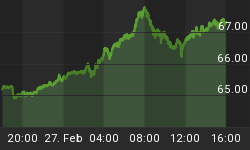Oil prices plunged on Wednesday as fears of economic recession rose after a wave of interest rate cuts from around the world.
In rapid succession, the central banks of India, New Zealand and Thailand cut interest rates on Wednesday as they scrambled to protect their economies and exports from the fallout from the U.S.-China trade war. The rate cuts are a sign that the battle between Washington and Beijing poses threats to the global economy.
Higher U.S. tariffs on China would slow both economies, but the response of the Chinese government could be to weaken its currency in an effort to offset the effect of tariffs. On Monday, China’s yuan weakened to around 7 to 1 to the U.S. dollar – although the official anchor stopped just short of that threshold – the weakest since the global financial crisis in 2008. China’s central bank has thus far refrained from letting it weaken further, as there are a litany of risks of letting the yuan depreciate too much.
But because of China’s importance to the global economy, and because currencies are interconnected, and because the dollar-yuan relationship sets the tone for global monetary policy, the sudden weakening of the yuan puts tremendous pressure on other emerging markets. Two days after the yuan dropped, India, New Zealand and Thailand quickly moved to cut their interest rates. “This is a defensive action by countries seeking to protect themselves from the collateral damage of rising global trade tensions, amid weakening domestic growth,” said Eswar Prasad, former head of the International Monetary Fund’s China division, according to the New York Times.
But defensive action can beget more defensive action. As more currencies depreciate, more pressure is piled on others to follow suit. The danger is a cascading race to let currencies depreciate, ultimately leading to a kind of currency war.
The dollar is the world’s reserve currency, and an incredibly liquid safe haven asset, so capital tends to flow into the dollar in times of turmoil. That is especially true when other currencies are depreciating. As such, the dollar tends to see upward pressure in times of upheaval, which can be problematic. President Trump has already been berating the Federal Reserve to cut interest rates deeper; he won’t be too pleased if the dollar starts to strengthen relative to other currencies. Related: VCs Are Pouring Billions Into Cannabis As Legalization Looms
But, of course, that is a problem of his own making. The U.S.-China trade war is a war of choice, one that will now be hard to climb down from. Maximalist demands make compromise extremely difficult.
Cooler heads may yet prevail, but with Xi Jingping showing no signs of backing down, Trump has backed himself into a corner, leaving few face-saving ways to exit the trade war for either leader.
The fallout has been swift. It has only been a few days since Trump tweeted about higher tariffs on China, but there have already been several rate cuts from multiple central banks, and likely more in the offing. The Dow Jones Industrial Average is down 7 percent in the past week.
Crude oil has plunged by even more, falling by more than 13 percent in the first week of August. In fact, oil is down by more than 20 percent since a recent peak in April, which puts it into bear market territory.
Oil is suffering from its own set of unique problems, with weak demand lagging behind large increases in supply. A surprise build in crude inventories on Wednesday from the EIA led to steeper fall in oil prices, which were already reeling.
There is also a direct effect of the currency battle on oil demand. A stronger dollar makes oil more expensive to the rest of the world. That has an immediate pricing impact on consumers, which is why oil tends to move inversely to the dollar. Related: Trader Compares Current Market Environment To 2007
However, demand is also slowing because of the broader economic problems – the trade war and the deteriorating in global economic conditions are magnifying the price declines. It’s no coincidence that crude plunged by 5 percent on Wednesday, after the surprise interest rate cuts from multiple central banks. The threat of a currency war has raised fears of a deeper plunge in the global economy, which would obviously be hugely negative for oil demand.
Not everyone believes the market is in crisis. “We believe that the oil market is now in a phase of exaggeration. Demand is not sufficiently weak to justify the current price performance,” Commerzbank said in a note. “Assuming there is no recession, oil demand should continue to see robust growth.”
Judging by Wednesday’s meltdown, that view may be a bit of an outlier.
By Nick Cunningham, Oilprice.com
More Top Reads From Safehaven.com:
















